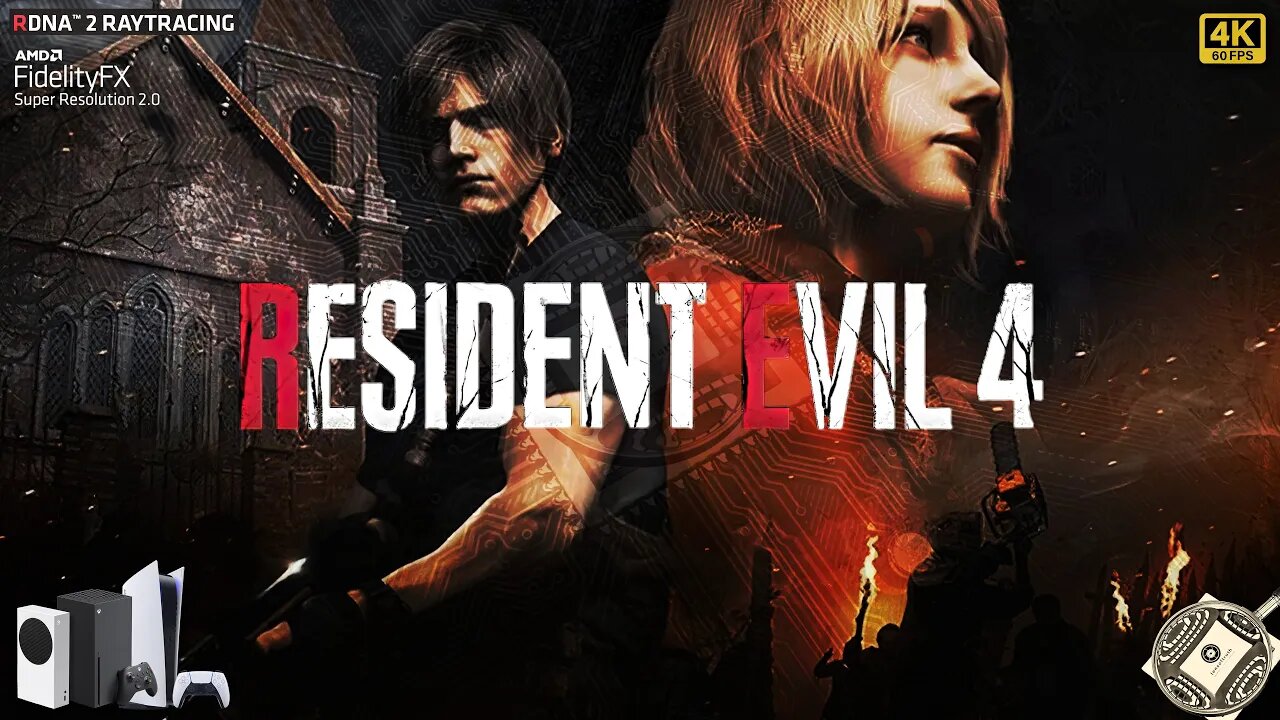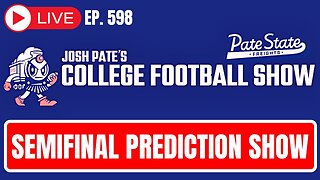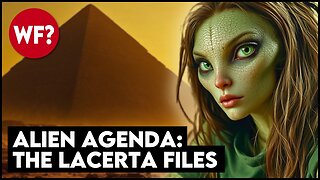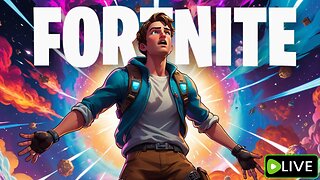Premium Only Content

Resident Evil 4 Remake Analysis on Xbox Series X/S and PS5 - RT / FSR / 4K
Analysis of performance and image quality of Resident Evil 4 Remake on Xbox Series S, Series X and PS5.
Index:
Intro 00:00
Frame Rate - Resolution Mode (RT ON) Analysis 00:41
Resolution - Resolution Mode (RT ON) Analysis 02:41
Reflections - Resolution Mode (RT ON) Analysis 03:56
Shadows - Resolution Mode (RT ON) Analysis 04:51
Textures - Resolution Mode (RT ON) Analysis 05:46
Hair Tech - Strands Off Analysis 06:41
Loading Analysis 07:01
Frame Rate - Frame Rate Mode Analysis 07:30
Resolution - Frame Rate Mode Analysis 09:30
Reflections - Frame Rate Mode Analysis 10:45
Shadows - Frame Rate Mode Analysis 11:40
Textures - Frame Rate Mode Analysis 12:35
Hair Tech - Strands On Analysis 13:30
Frame Rate - Resolution Mode (RT OFF) Analysis 13:50
Resolution - Resolution Mode (RT OFF) Analysis 15:50
Reflections - Resolution Mode (RT OFF) Analysis 16:40
Shadows - Resolution Mode (RT OFF) Analysis 17:17
Textures - Resolution Mode (RT OFF) Analysis 17:53
Technical dictionary:
- AMD FidelityFX™ Super Resolution (FSR):
FidelityFX Super Resolution (FSR) is used to upsample an input image into a higher resolution. There are two versions of FSR with distinctive upscaling technique and image quality.
FSR 1 is a spatial upscaler based on the Lanczos algorithm* requiring an anti aliased lower resolution image.
FSR 2 and 2.1 is a temporal upscaler based on a modified Lanczos* requiring an aliased lower resolution image and utilising the temporal data (such as motion vectors and frame history) and then applies its own anti aliasing pass which replaces the game's temporal anti-aliasing solution.
Quality Preset Scale Factor Render Scale
Performance 2.0x 50.0% (e.g. for 4k: 1080p upscale to 2160p with FSR)
Balanced 1.7x 58.8% (e.g. for 4k: 1270p upscale to 2160p with FSR)
Quality 1.5x 66.6% (e.g. for 4k: 1440p upscale to 2160p with FSR)
* The Lanczos algorithm is an iterative algorithm invented by Cornelius Lanczos that is an adaptation of power methods to find eigenvalues and eigenvectors of a square matrix or the singular value decomposition of a rectangular matrix. It is particularly useful for finding decompositions of very large sparse matrices.
- Cube Mapping Reflections:
A Cubemap is a collection of six square textures that represent the reflections on an environment. The six squares form the faces of an imaginary cube that surrounds an object; each face represents the view along the directions of the world axes (up, down, left, right, forward and back). Cubemaps are often used to capture reflections or “surroundings” of objects; for example skyboxes and environment reflections often use cubemaps.
- Screen Space Reflections (SSR):
Screen space reflections (SSR): a more expensive technique that traces reflection rays in screen space (as opposed to world space in e.g. ray tracing). This is done for each rendered pixel of the reflected surface, using the surface normal and scene depth.
The disadvantage is that objects not captured in the rendered frame cannot appear in the reflections, which results in unresolved intersections and incomplete reflection image.
- Ray-Traced Reflections
Ray-Traced Reflections is a more accurate ray-traced solution to Screen Space Reflection technique (that traces reflection rays in screen space), ray tracing traces reflection rays in world space.
The disadvantage of the technique using ray tracing is the need for a dedicated hardware for accelerating the calculations needed to perform the feature.
- Shadow Mapping
Shadow mapping or shadowing projection is a process by which shadows are added to 3D computer graphics. This concept was introduced by Lance Williams in 1978, in a paper entitled "Casting curved shadows on curved surfaces."[1] Since then, it has been used both in pre-rendered and realtime scenes in many console and PC games. Shadows are created by testing whether a pixel is visible from the light source, by comparing the pixel to a z-buffer or depth image of the light source's view, stored in the form of a texture.
- Simple Shadow Mapping
Simplest possible implementation of Shadow Mapping, without any smoothing or additional features.
- Soft Shadows Mapping
Soft shadows are typically rendered in games by using shadow mapping and Percentage Closer Filtering with a uniform kernel size. The Percentage-Closer Soft Shadows (PCSS) algorithm computes a variable kernel size based on the distance between the relative position of the receiver point, an approximation of the blocker, and the area light.
- Ray-traced Shadows
Ray-traced shadows are generated by tracing the path of rays sampled from a light source. Ray-traced shadows are more accurate than shadow-mapped shadows. All ray-traced shadows are world space shadows.
Facebook Group:
https://m.facebook.com/groups/14589692844998
-
 3:28:23
3:28:23
vivafrei
16 hours agoEop. 244: FBI Seeks HELP for Jan. 6? FBI Taints New Orleans Crime Scene? Amos Miller, Lawfare & MORE
221K290 -
 2:27:48
2:27:48
Joker Effect
9 hours ago2025 already started up with a bang! Alex Jones, Bree, Elon Musk, Nick Fuentes, Fousey
50.2K7 -
 LIVE
LIVE
Vigilant News Network
15 hours agoEXPOSED: Secret Government Plot to Deploy Aerosolized ‘Vaccines’ Using Drones | Media Blackout
1,781 watching -
 1:13:49
1:13:49
Josh Pate's College Football Show
11 hours ago $10.72 earnedSemifinal Predictions: OhioSt v Texas | Notre Dame v PennSt | Playoff Cinderella | Alabama’s Future
82.8K4 -
 27:56
27:56
The Why Files
1 day agoThe Seventh Experiment: Lacerta Reveals the Truth of our Creation
137K75 -
 45:53
45:53
hickok45
22 hours agoSunday Shoot-a-Round # 262
57.1K20 -
 4:52:32
4:52:32
Rotella Games
1 day agoGrand Theft America - GTA IV | Day 1
95.1K7 -
 8:16:19
8:16:19
Joe Donuts Gaming
22 hours ago🟢Fortnite Live : Chill Vibes Lounge!
105K10 -
 38:43
38:43
Standpoint with Gabe Groisman
18 hours agoEp. 63. Terror Strikes the Nova Music Festival. Ofir Amir
168K53 -
 36:04
36:04
Forrest Galante
1 day agoPrivate Tour of an Indian Billionaire’s Secret Wildlife Rescue Center
133K19